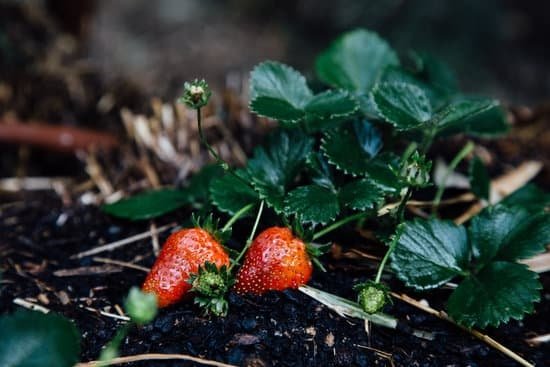Introduction
Organic gardening is an environmentally friendly method of gardening that uses natural methods and materials instead of synthetic chemical products. Organic fertilizers provide nutrients to plants in a natural way and can add beneficial microorganisms to the soil.
The benefits of using organic fertilizer in vegetable gardens are numerous. Organic fertilizers provide slow-release nutrients that are readily available for plant growth and are more sustainable than most synthetic commercial fertilizers. They also actively improve the quality of the soil by increasing its porosity, improving root penetration, and adding valuable minerals into it. Additionally, they can improve the water-holding capacity of garden beds without creating an overly soggy environment which could lead to disease or mold growth. Furthermore, organic fertilizers help increase microbial activity in the soil which aids in breaking down organic matter, thus releasing a steady flow of nutrients for plants over time. This steady supply is especially helpful when growing vegetables as it helps ensure that all of their needs are met during their entire life cycle, from seed germination through fruit or flower production. Using organic fertilizer also helps keep weeds at bay by maintaining healthy plant roots which crowd out unwanted weeds and prevent them from taking hold in beds with less competition from cultivated plants.
Advantages of an Organic Fertilizer Gardening Vegetable Garden
Organic fertilizer gardening vegetable gardens are becoming increasingly popular among home gardeners, as they provide a number of advantages over conventional gardening methods. By using an organic fertilizer, plants get the nutrients they need without the use of harsh chemicals or pesticides, protecting both the environment and the health of the gardener. Organic plant nutrition is also beneficial for maintaining soil quality and providing minerals to crops. Additionally, organic fertilizers are often cheaper than those containing synthetic chemicals and having a long-lasting release of nutrients to promote healthier yields of vegetables. Other advantages include fewer problems with weeds, pests, and disease; improved soil structure for better drainage; and more natural resistance to drought conditions. These techniques also help other parts of the ecosystem such as increasing beneficial insects like earthworms and ladybugs which help naturally control pests in your garden. Finally, organic vegetable gardens have been known to produce tastier fruits and vegetables due to their lack of chemical additives found in regular fertilizers.
Preparing Your Soil for an Organic Fertilizer Vegetable Garden
Organic gardening is a great way to ensure you’re growing fresh, nutritious vegetables without exposing your plants to harmful chemicals. To give your organic vegetable garden the best chance of success, it’s important that you properly prepare the soil before planting.
To prepare the soil for an organic fertilizer vegetable garden, begin by testing the soil with a pH kit – this will tell you how acidic or alkaline the soil is. If the soil falls outside of the ideal range for your vegetables, then you can add compost or other items such as manures or lime to help balance out the pH level. After that, plow and rotate your garden to help mix up any areas of dirt that are too hard and create a good tilth (texture). Finally, rake in any additional organic fertilizer so it has time to incorporate into the top layer of soil before planting begins. You can also add mulch materials such as straw or wood chips to improve water retention in your soil if needed. With these steps complete, your vegetable garden will be ready for sowing!
Selecting the Best Organic Fertilizers for Your Vegetable Garden
When selecting organic fertilizers for your vegetable garden, it is important to consider the nutrients that the soil requires and how the fertilizer will help support plant growth. Organic fertilizers typically contain a range of macronutrients, as well as micronutrients and beneficial microbes that help break down organic matter and vitalize soil health. Furthermore, they can amend soils in many ways such as increasing cation exchange capacity, improving water holding capacity, increasing infiltration rate and reducing compaction.
For vegetables specifically, there are several types of organic fertilizer choices. Manure or compost from an animal source can provide nitrogen and other essential nutrients to vegetables. Composted plant sources—such as green manure crops and crop residues—can provide phosphorus, nitrogen, moisture retention and slow-release nutrients for vegetables. Alfalfa meal may be added to increase potassium content while kelp seaweed extract supplies micro-minerals like calcium magnesium and boron. Mycorrhizae inoculants mixed with granular fertilizers can add beneficial bacteria and fungi that work to increase root productivity while improving disease resistance of plants. Finally, foliar feeding should also not be forgotten when caring for your vegetable garden; applying liquid seaweed or fish emulsion sprayed on leaves can supply essential minerals to the plant’s foliage encouraging higher yields at harvest time.
How & When to Apply Organic Fertilizer for Best Results
Organic fertilizers come in many forms, such as compost, manure, and cover cropping. The type you choose will largely depend on what vegetables you are growing and the condition of your soil. Generally speaking, it’s best to apply organic fertilizer when a vegetable is actively growing. This means that it should be applied in the early stages of planting, and again during flowering and harvesting time. Compost is especially helpful for providing a steady release of nutrients to your plants throughout the entire growing season. Manure is best used before the first signs of vegetation begin to appear in your garden bed. Cover crop mixtures work well when added to beds at the beginning of their dormant period in order to enrich the soil with minerals and other elements while they are not being actively used by plants. All organic fertilizers should be evenly distributed over your entire vegetable garden at least twice each year according to manufacturer’s instructions as an ongoing practice for successful gardening results. Careful consideration should also be given when deciding how much fertilizer to apply based on which types of vegetables you’re growing, soil conditions, and localized climate variations. All these factors play into how much and how often fertilizer needs applying for optimal yield from your crops.
Common Obstacles & Mistakes to Avoid With Organic Gardening
Common obstacles to organic gardening include lack of knowledge, incorrect soil preparation, and insufficient sunlight. Improper knowledge of the right type of fertilizer can lead to a failing garden and incorrect soil preparation can create a range of issues with drainage, air circulation and nutrient availability. If the amount of available light is insufficient, photosynthesis will be limited leading failure in plant growth along with disease-causing pests.
When creating an organic garden there are several mistakes to avoid such as not removing previous crop debris, rush planting vegetables before the appropriate season, and inadvertently starting plants indoors with contaminated soil or pots. Removing old crop debris ensures that left over pathogens or parasites do not cause damage to new transplants. When fruit or vegetables are planted too early in the season it can leave them susceptible to inclement weather or unwelcome insects, which can affect yields. Furthermore, growing certain vegetables indoors may lead to contamination from other house plants if the same soil is used for both tomatoes and ferns for example.
Additional Tips for Healthy Organic Vegetables
1. Choose heirloom varieties if possible. Heirloom vegetables are naturally more robust than hybrid varieties and can benefit from organic fertilizers more easily.
2. Provide enough water. Organic fertilizers work best when your vegetable plants have the proper amount of moisture in the soil, so make sure to keep an eye on their water needs.
3. Give your plants space. Organic fertilizer will do its job better when your vegetables are properly spaced out and in healthy soil, allowing for effective absorption of the nutrients it contains.
4. Compost regularly. Adding natural compost to your garden is one of the best ways to give it a nutrient boost, which can supplement any organic fertilizer used over time at regular intervals until desired results are achieved
5. Mulch and cover the ground surface underneath your vegetable plants with materials like straw or leaves, this helps maintain beneficial microbial activity and minimize weeds while providing additional protection against extreme temperatures and insulating the soil throughout the growing season
Conclusion & Resources for Further Learning About Organic Gardening
Organic gardening is an environmentally friendly and sustainable way to grow vegetables. It does not rely on synthetic fertilizers and pesticides to provide nutrients for plants. Instead, it employs natural fertilizers, like composted manure, green manure, mulch and cover crops, to improve soil fertility. Natural pest control methods are also used to keep pests in check. Organic fertilizer gardening vegetable can produce healthy, nutritious vegetables with minimal environmental impact.
Organic gardening requires knowledge of local ecosystems as well as knowledge of how fertilizers can be applied at different stages of the growing season. Furthermore, fruits and vegetables must be harvested before they become overripe or get too much sun exposure in order to reduce pest interference. Careful consideration should also be taken when choosing varieties that are adapted to organic growing conditions.
To further explore the world of organic gardening there are many helpful resources available online including websites of national organic organizations, university extension programs and local farmers’ markets. Additionally, books such as “Organic Farming 101” and “The Secrets of Successful Organic Vegetable Gardening” provide useful advice on all aspects of growing organic vegetable gardens. Consider attending a local farmer’s market where experienced gardeners offer advice on growing safe and healthy food sources while building community relationships that enrich our daily lives.

Welcome to my gardening blog! I am passionate about plants and enjoy sharing my knowledge and experiences with others. In this blog, I will write about everything related to gardening, from tips on how to get started to updates on my own garden projects.





